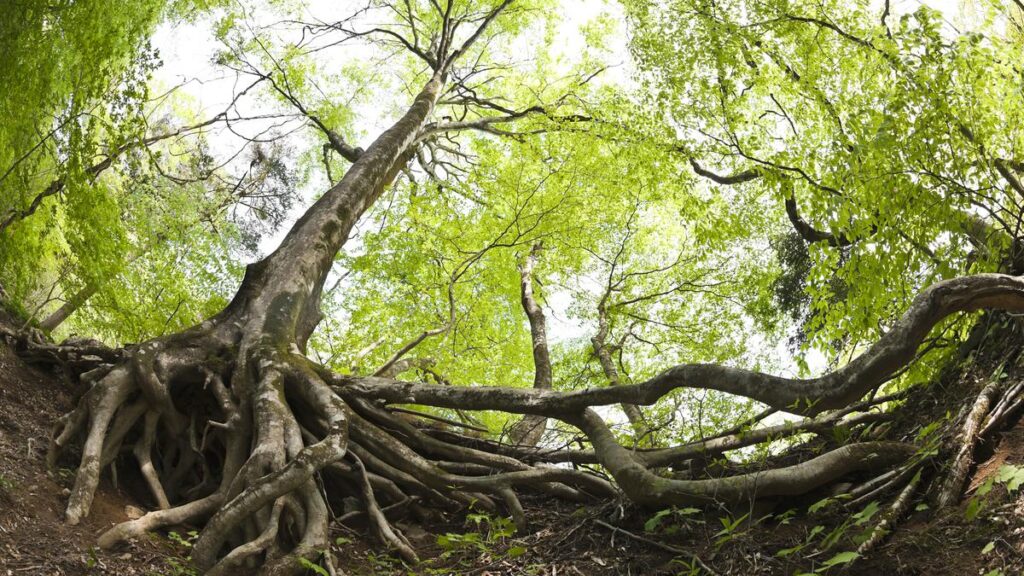
‘Future conservation efforts should be designed to strengthen our emotional bond with nature’
| Photo Credit: Getty Images/iStockphoto
The phrase, “Ecology is the permanent economy”, made popular by environmentalist Sunderlal Bahuguna, is much more than a slogan. It is a profound reminder of the foundational truth that human prosperity is inextricably linked to ecological health. It is true that economic development without exploiting natural resources and economic stability without conserving them are impossible. As we face serious challenges such as climate change and the rapid loss of biodiversity, we must ask ourselves whether we have truly understood and embraced this idea.
Striking the right balance
Understanding nature’s complexity is at the heart of science. In this pursuit, humans have made tremendous efforts through observation, experimentation, and modelling, as this understanding is crucial for addressing environmental challenges such as climate change and for informing sustainable practices. While these scientific discussions are valuable, there is an even more urgent and fundamental truth we need to focus on: ecology is the real economy — our survival, security and progress depend on it. In simple terms, this might be the clearest way to define sustainability — finding the right balance between protecting the environment and supporting economic development. Without this balance, neither the environment nor the economy can thrive in the long run.
Despite being part of the animal kingdom, human evolution, through the course of civilisation, has led to a growing disconnection from nature. This disconnection with nature has been identified as a reason for the ongoing biodiversity loss (the recent Intergovernmental Science-Policy Platform on Biodiversity and Ecosystem Services or IPBES Transformative Change report).
In the early stages of human history, a nomadic lifestyle compelled individuals to rely on and exploit natural resources solely for their basic, day-to-day survival needs. Over time, this individual-centric resource use evolved into collective consumption aimed at meeting the needs of growing communities. As human societies expanded and organised themselves into nations, this demand scaled further to cater to the needs of entire countries. Eventually, this progression gave rise to global competition, where nations began to exploit nature not only to satisfy present demands but also to secure resources for future development. Unlike humans, no other species in the animal kingdom exhibits this pattern of large-scale, anticipatory exploitation of natural resources. Other animals live in harmony with their environments, taking only what they need for immediate survival, without disturbing the long-term balance of the ecosystems they inhabit.
New complications
The ever-intensifying cycle of human consumption and global competition has placed an unprecedented strain on the planet’s ecosystems and significantly accelerated the pace of climate change — a natural phenomenon now dangerously amplified by human activities. In response to these growing environmental challenges, nature-based solutions have been widely advocated in global conservation efforts. These approaches aim to leverage the inherent resilience of ecosystems to mitigate climate impacts, restore biodiversity, and support sustainable development. However, a paradox emerges: we continue to exploit nature to satisfy our needs and greed, while simultaneously relying on the same natural systems to act as a buffer against the consequences of such exploitation. This dual dependence risks creating deeper ecological imbalances and may further complicate the ability to address the climate crisis effectively.
In this context, rather than merely attempting to understand the intricate complexity of ecological systems from a scientific standpoint, it is far more critical to recognise a fundamental truth — that ecology is the permanent economy. Acknowledging this principle shifts our perspective from short-term exploitation to long-term stewardship, positioning ecological health not as a constraint, but as the very foundation of human survival, economic stability, and climate resilience.
This realisation is not just timely — it is essential to confronting the ongoing environmental crisis and shaping a sustainable future. It is only through this reframing that humanity can move from reactive conservation to proactive planetary sustainability. The climate crisis is not just a scientific challenge. It is a moral and existential reckoning with the ecological foundations of our existence.
The need to reconnect with nature
Climate change and change in distribution patterns of biological diversity are not new for planet earth. However, the rate at which it is now occurring is detrimental to the planet’s biological diversity, including people, due to past unsustainable developmental activities by humans. Therefore, the change we need must come from within.
Since all developmental activities across the globe are aimed at fulfilling human needs, adopting a sustainable lifestyle is every individual’s responsibility in order to ensure the success of global sustainability initiatives. To achieve this, we must realise that humans are an integral part of nature.
Though technological advancements have distanced modern lifestyles from nature, one unique natural trait that humans possess is the power to reconnect with nature using emotion (which still lives within us). Thus, future conservation efforts should be designed to strengthen our emotional bond with nature. To ignite this, a realisation that “ecology is the permanent economy”, is more imperative than merely understanding the ecological complexity that exists in nature.
P. Ragavan is a scientist with an interest in taxonomy, ecology and the biogeochemistry of mangroves and seagrasses. He is working on the conservation and management of mangroves and carbon dynamics in the blue carbon habitats of India. The views expressed are personal
Published – May 14, 2025 12:08 am IST

